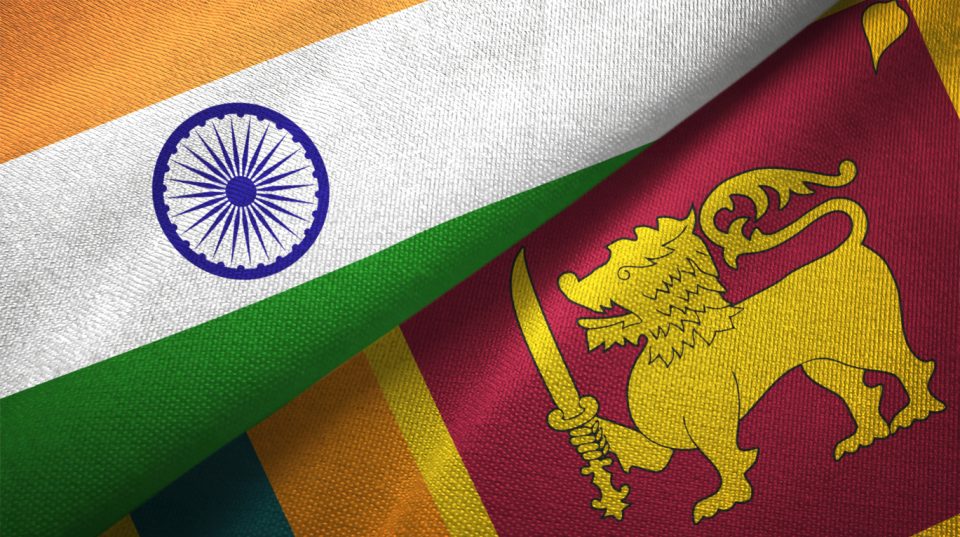
Jaffna meet attendees urge Sri Lanka to devolve power, seek India’s backing

An unprecedented gathering of Tamil political parties and subject experts in Sri Lanka’s northern town of Jaffna has urged Colombo to devolve powers to the northern and eastern provinces and pressed India to back the long-awaited process.
Representatives of a broad spectrum of political parties and others made the appeal at a five-hour meeting that ended late on Saturday (July 15) at the Chelvanayakam Memorial Trust hall in the heart of Jaffna.
There was a broad unanimity in thinking that the Sri Lankan government needed to return to the provincial councils many powers devolved to them by the 1987 India-Sri Lanka Accord but later taken away by Colombo.
Also read: Sri Lanka wants to use the Indian rupee as much as US dollar: President
The speakers also underlined that India, as a signatory to the 1987 pact signed with Sri Lanka, must ensure that the promised devolution was given to the now-bifurcated northeastern province for Tamils to enjoy autonomy within a united island nation.
Dislike for devolution
There is widespread antipathy among the majority Sinhalese community towards devolution of powers to Tamil provinces, particularly because of a suspicion that autonomy could be a stepping stone to a revival of Tamil separatism.
Ironically, the distaste for the 1987 pact and the 13th amendment to the constitution that flowed from it, devolving powers to provinces, was also opposed by the now extinct Liberation Tigers of Tamil (LTTE), which wanted to settle for nothing except an independent Tamil homeland to be carved out of Sri Lanka’s northeast.
But the speakers on Saturday emphasized that all this had resulted in enormous wastage of time and loss of power to the northern and eastern provinces that could have, in the present times, acted as a catalyst for provincial development.
Also read: Ask Sri Lanka to free 15 Tamil Nadu fishermen it has arrested: Stalin to Centre
“There is a lot we could have done by now” if the 13th amendment had been implemented in toto, said Kosalai Mathan, who heads the department of law at Jaffna University.
She added that India was not backing a federal concept in Sri Lanka, a demand raised by a section of the Tamil political leadership. Federalism, unlike in India, is looked down upon by a majority in Sri Lanka.
Powerless provinces
Kandappu Pathmanathan, a former Secretary of the Eastern Provincial Council and a later Food and Agriculture Organization consultant, accused Colombo of snatching from the provincial council the subject of agrarian services, much to the detriment of the Tamil community that continues to rely heavily on farming.
S Thavarasa of the pro-government Eelam People’s Democratic Party (EPDP), whose leader Douglas Devananda is a Sri Lankan minister, said Colombo had also stripped the provincial council of its powers over fisheries — another vocation thousands of Tamils are engaged in.
Similarly, the speakers pointed out that the Sri Lankan government had taken back provincial council powers over schools (in the name of national schools), hospitals, and medical institutions — even those which are not national hospitals — and also rest houses and tourist resorts in the north and east.
On top of everything, there is no elected provincial administration in the north and east, not to talk of local bodies, leaving everyone to depend on Colombo even for minor issues at a time when the country is still bogged down by its most crippling financial crisis since independence in 1948.
Also read: Sri Lankan President Ranil Wickremesinghe set to visit India on July 21
K Vigneswaran, a former secretary to the first elected chief minister of the northeast, said all the powers taken away by Colombo could be restored even before fresh elections take place in the north and east.
This point was also emphasized by CV Wigneswaran, an MP and a former chief minister of the northern province, who said: “A lot can be done even before provincial elections are held.”
Need for India’s support
Suresh Premachandran of the Eelam People’s Revolutionary Liberation Front (EPRLF), a former MP, underlined the need for India’s support to the devolution process but said New Delhi will never back a federal set-up in Sri Lanka.
Kandiah Sarweshwaran, a Tamil activist and PhD scholar from New Delhi’s Jawaharlal Nehru University, said India has not only a duty but an obligation to ensure the full implementation of the 13th amendment to the constitution.
Only Mavai S Senathirasa of the Ilangai Tamil Arasu Katchi (ITAK), who reportedly cited ill health, and Adaikalanathan Selvam of the Tamil Eelam Liberation Organisation (TELO), who recently visited China, did not attend the meeting despite being invited.
Also read: Sri Lanka Speaker thanks ‘trustworthy friend’ India for economic assistance
Muslim parties active in the eastern province, as well as parties representing the Indian Tamils who populate the tea-growing central hills in Sri Lanka, were not invited, apparently to give a coherent picture of the thinking in the northern and eastern Tamil areas.
Saturday’s meeting in Jaffna came ahead of a scheduled visit to India this month by Sri Lankan President Ranil Wickremasinghe.

